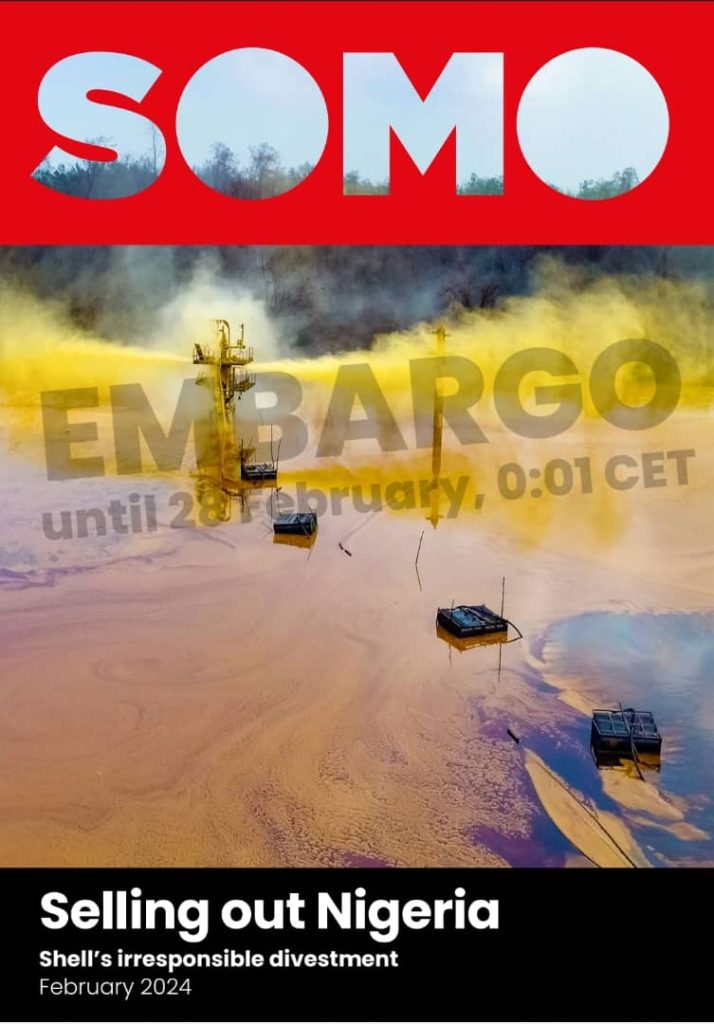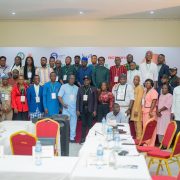SDN, SOMO Launch Report interrogating Shell’s Divestment

By Ekemini Simon
Stakeholders Democratic Network (SDN) in collaboration with the Centre for Research on Multinational Corporations (SOMO) has launched a report that examines the manner, legacy and likely future consequences of Shell’s exit from its onshore oil business in Nigeria’s Niger Delta.
The report authored by the Centre for Research on Multinational Corporations (SOMO) and titled ” Selling out Nigeria: Shell’s Irresponsible Divestment” was launched on Wednesday in Port Harcourt, Rivers State.
It could be recalled that although Shell has been gradually divesting from onshore exploration since 2010, it announced its plan in January 2024 to sell its Nigerian onshore assets thus signaling its exit from Nigerian onshore oil business.
Presenting the report, the Executive Director of SOMO, Audrey Guaghran noted that the report highlights three intersecting features of Shell’s divestment which, unless they are addressed urgently, will result in dire consequences for generations.
She highlighted the concerns to include; legacy pollution that has not been properly cleaned up; the decommissioning problem; and the maze of investors that has replaced Shell.
The Executive Director pointed out that Shell has not cleaned up its legacy oil pollution yet is now leaving. Guaghran noted that Shell relying on certification of Clean-up by Nigeria’s National Oil Spill Detection and Response Agency (NOSDRA) which is under-resourced and over-influenced by Shell is flawed and cannot be relied on.
On the massive decommissioning problem, the presenter stated that the question on who will carry out and pay for the decommissioning of the Delta’s vast oil infrastructure is of concern. She explained that while Shell has failed to properly decommission infrastructure it has abandoned before divestment, Nigeria is likely to face enormous future decommissioning challenges especially as the country is already confronting the issue of new companies abandoning infrastructure. She noted that what is more worrisome is the fact that researchers have not found any confirmation that Shell has provided funds to cover decommissioning of the assets it has sold.
On the maze of investors, Guaghran said Shell has sold its assets to newly created companies that in some cases have little real substance, have opaque backgrounds, or involve complex groups of domestic and foreign investors.
She added “Some of these buying entities appear to have no stability and/or face financial problems. There is a major risk that some of these companies will disappear, leaving the communities with no entity to deal with pollution, decommissioning and other issues.”
SOMO’s Executive Director insisted that under the current pattern of divestment, there is a strong likelihood that people born well after oil production has stopped will live with the impacts of the divestment for decades.
Earlier, the Country Director of Stakeholders Democratic Network, Florence Kayemba expressed displeasure over the fact that Nigeria’s environment is what is enabling Shell to divest without transparency and accountability.
She added ” We are living in a perilous time. We are facing an economic crisis. However, there has to be a reminder and a very strong one at that that we are the ones laying the golden egg. There has to be a clean up of our polluted environment. We don’t have to wait for anyone because we are clearly on our own. We have to figure the way out.”
Kayemba insisted that to get out of the woods, there must be a concerted effort from the communities, Civil Society Organisations among other stakeholders to ensure divestment by transnational oil companies is responsible and just.









